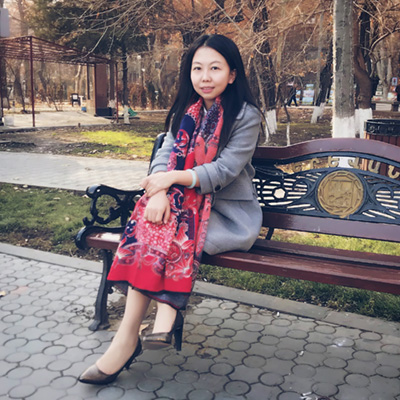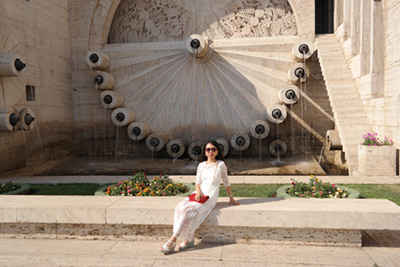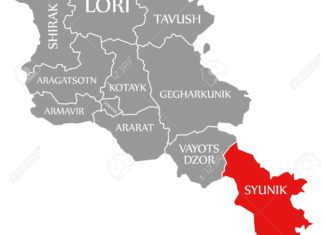YEREVAN — I first met Shi Xingyu in 2019 at the Yeghishe Charents House-Museum in Yerevan, where she presented her paper, “Charents in Chinese,” at the “Charents and His Time” conference. In fluent Armenian Xingyu presented the Chinese translations from Charents’s poetry to date.
Shi Xingyu studied at Beijing Foreign Studies University from 2013 to 2017, where she received a bachelor’s degree in international economics and trade as well as a bachelor’s in English language and literature. From 2017 to 2020 she studied at the Philology Faculty of Armenian Language and Literature at Yerevan State University, graduating with honor. Before that she took courses at the University of Westminster in UK and Salesian Pontifical University in Italy. Shi Xingyu provides translations from English and Armenian into Chinese.
Dear Xingyu, I assume you already have come to terms with the thought that people hearing your fluent Armenian ask how this interest begin. I am no exception.
Yes, I have answered this question many times. Our university in Beijing is famous for language studies, where more than 90 languages are taught. In my second year at college, we had a chance to learn a new foreign language, and Armenian is on the list. There are mainly three reasons for me to choose Armenian: Firstly, it was the first year that the university opened the Armenian language course, and I wanted to be among the first group who learn it. Secondly, I am always interested in Indo-European languages. Armenia, as a unique branch in the Indo-European language family with its unique alphabet, attracted me immediately. Thirdly, after reading the history of the country, I was so fascinated by its legendary past.
My long-time acquaintances show people coming to Armenia experience different kinds of cultural shocks. How was yours?
I had experienced big cultural shocks in London as it was my first time abroad, but to be honest, I did not face many cultural shocks here in Armenia. Armenia, as a Eurasian country, mixes European and Asian culture together. I have found some common value shared by both Chinese and Armenian people, such as the close family bonds, which also makes me feel close to the Armenians. But I did have difficulties when I started to learn in the Armenian philology faculty, as all the courses were taught in pure Armenian and my Armenian was too poor. I had suffered a lot during that time to get used to the study routine and catch up with my classmates.










